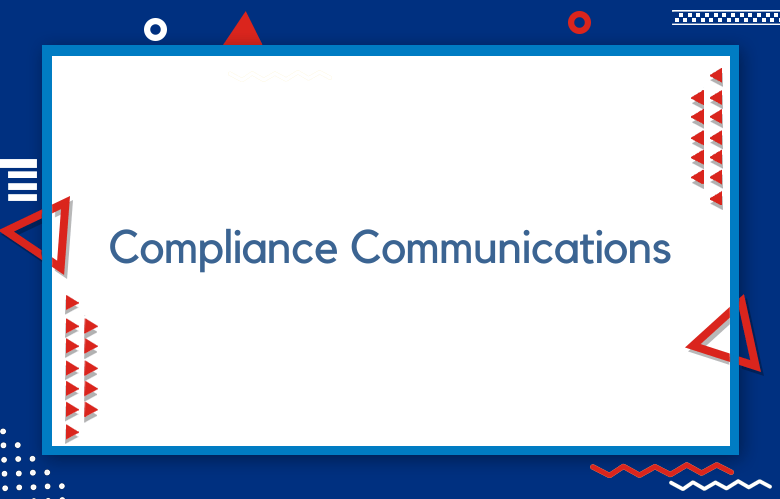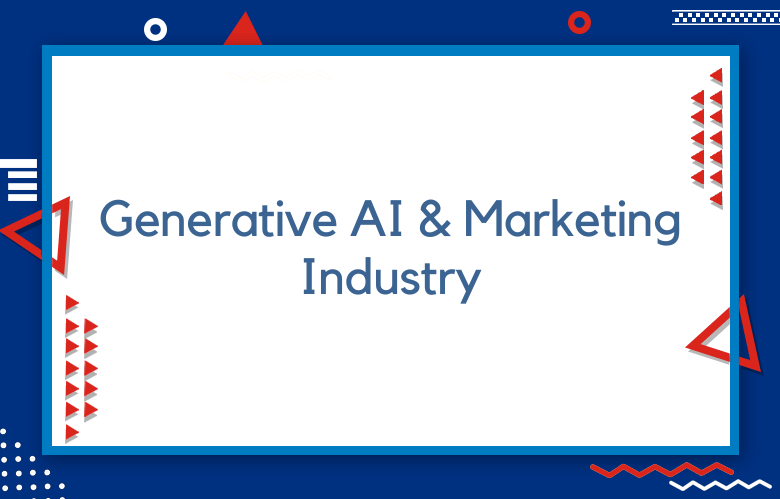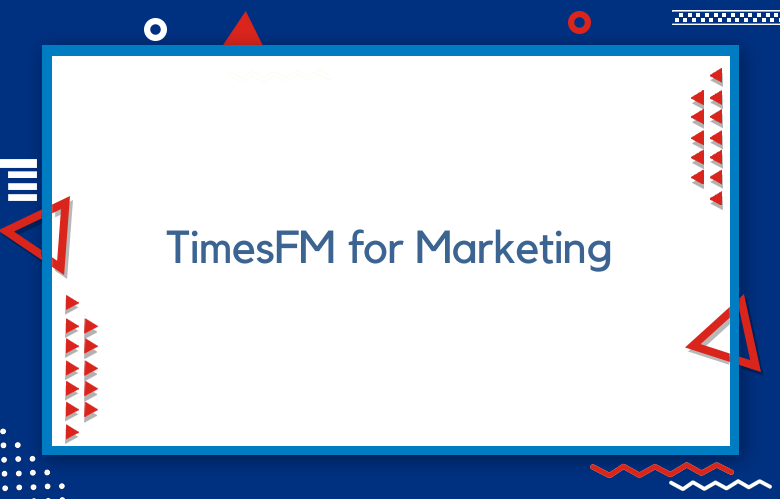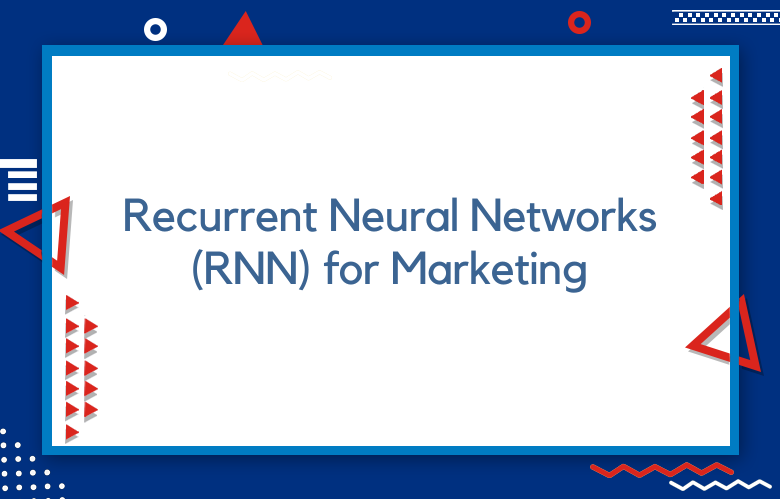Compliance Communications with AI Marketing Strategy

In today’s digital era, using artificial intelligence (AI) in marketing is becoming increasingly prevalent. AI analyzes consumer data, personalizes marketing campaigns, and automates customer service.
But did you know that AI can also be used to ensure compliance with regulatory requirements? That’s right. Compliance communications and AI marketing strategies can work hand in hand to help your business succeed in a compliant and ethical manner.
AI Marketing Strategies for Compliance Officers
In today’s increasingly technological world, compliance officers face new challenges when meeting regulatory requirements. Many are turning to artificial intelligence (AI) marketing strategies to ensure compliance within their organizations.
These strategies involve utilizing AI tools and answers to gather and analyze data and automate specific compliance processes.
One of the primary benefits of AI marketing strategies for compliance officers is their ability to provide a more streamlined and efficient approach to compliance.
Compliance officers can reduce the time and resources required to meet regulatory requirements by automating specific processes, such as data analysis and risk assessments. This saves money and allows the compliance team to focus on complex compliance issues and tasks.
Leveraging AI in Compliance Communications
With the surge of technology, companies are beginning to recognize the potential benefits of Artificial Intelligence (AI) usage. One significant area where AI can be leveraged is compliance communications.
Compliance communications can be a complex area where the rules and regulations constantly change. Ensure the message is delivered accurately and promptly to ensure efficient compliance with regulatory requirements.
AI can be utilized to make compliance communication more efficient and effective. For example, AI systems can assist in identifying regulatory changes and real-time updates on compliance issues.
This can be achieved through machine learning and Natural Language Processing (NLP) algorithms that can analyze and process large amounts of data, including regulatory requirements, in real time.
Exploring the Potential of AI in Compliance Marketing
As businesses continue to grow and expand, the necessity for compliance marketing has become increasingly important. While there are regulations that govern the industry, compliance marketing is also essential in earning the public’s trust and loyalty.
To this end, companies are seeking advanced technologies to explore the potential of Artificial Intelligence (AI) in compliance marketing.
AI offers a range of benefits that can mitigate many of the challenges associated with compliance marketing. For instance, AI can help businesses identify potential compliance violations and anticipate customers’ behavior.
AI tools can also help develop targeted campaigns that adhere to legal guidelines and assure customers receive the correct information at the right time. These benefits can help businesses effectively enforce compliance regulations while driving business growth.
The Role of AI in Enhancing Compliance Communications
Artificial Intelligence (AI) is rapidly advancing and transforming various industries globally. The compliance industry is no exception in the adoption of AI technology.
Compliance communication can be described as sharing information about regulatory requirements and guidelines relevant to an organization’s sector with its employees and stakeholders for compliance. This process is essential as non-compliance can result in reputational damage, legal consequences, and financial loss to the organization.
AI can enhance compliance communication in numerous ways. For instance, AI can analyze compliance regulations and guidelines and provide real-time updates. This ensures that employees remain updated on regulatory requirements, reducing non-compliance risk.
Furthermore, AI can automatically monitor email communications, chat messages, and social media activities for signs of potential non-compliant behavior. This proactive approach can enable organizations to detect and prevent non-compliance before it occurs.
Transforming Compliance Communications with AI
In recent years, the field of compliance has undergone a significant transformation with the inclusion of Artificial Intelligence (AI) in communication processes.
This revolutionary technology is helping businesses of all sizes automate tasks and make critical decisions with greater efficiency and accuracy. Compliance communications are vital, as they often involve complex regulations and legal requirements that need to be adhered to.
Understanding AI’s benefits is essential to fully appreciating its impact on compliance communications. The most significant advantage is quickly processing large amounts of data.
With AI-assisted communication tools, businesses can analyze vast amounts of information, including regulatory updates, legal documentation, and company policies, to ensure they comply with all rules and regulations.
Understanding the Benefits of AI in Compliance Programs
With the advent of modern technology, more and more industries have leveraged Artificial Intelligence (AI) to improve their operations, and the compliance industry is no exception.
Compliance programs are essential in every business, ensuring the company adheres to various laws and regulations. Nowadays, utilizing AI in compliance programs has become a game-changer. We will discuss the benefits of AI in compliance programs that you should be aware of.
Enhanced Accuracy and Efficiency
One of the benefits of AI in compliance programs is the ability to streamline and automate repetitive tasks. As such, compliance professionals can focus on essential responsibilities that require decision-making. By automating tedious tasks, AI reduces human error, typically due to insufficient attention to detail, fatigue, or oversight.
AI-powered analytic tools can scrutinize and analyze large data sets and uncover complicated regulatory patterns faster than any human team. Consequently, compliance teams can make more informed, data-backed decisions rather than relying on gut instincts.
Cost-Effective Solution
Hiring and upskilling a team of compliance professionals to scrutinize regulatory patterns is time-consuming and expensive. Implementing AI into your compliance programs can save you the money and time it would take to train or hire more staff.
AI’s cross-checking and predictive models can anticipate potential compliance issues. As a result, compliance teams can handle those situations promptly, avoiding probable fines and penalties.
Better Risk Assessment
Implementing AI into your compliance program can help you create more advanced, flexible, and adaptable risk assessment systems. One of the key benefits of AI’s ability to analyze large datasets is that AI systems can identify high-risk compliance breaches, identify the root cause, and recommend remedial actions to prevent future occurrences.
Consistency
Human errors are common due to a lack of focus, fatigue, or the inability to remember every rule and regulation. By integrating AI into compliance programs, businesses can ensure a consistent adherence to rules. It can guarantee that each compliance check follows a uniform approach for every employee and make compliance in the company transparent and straightforward.
Informative Reporting
AI-powered analytic tools provide compliance programs with better reporting capabilities. It can easily customize reports that help businesses uncover crucial details that would otherwise be difficult for humans to identify.
Informative and insightful words allow companies to identify trends or issues affecting compliance and create measures to prevent recurrence.
Types of AI Applications for Compliance Communications
Compliance is vital to every business, particularly in regulated industries like finance and healthcare. With the constantly evolving regulatory landscape, companies must be aware of the compliance requirements and proactively communicate them to their employees.
However, communicating compliance requirements to a large workforce can be challenging, time-consuming, and error-prone. That’s where AI comes in. We’ll explore various AI applications businesses can use to streamline compliance communications.
Chatbots
Chatbots are one of the most common types of AI applications used in compliance communications. These AI-powered virtual assistants can engage in natural language conversations with employees, providing information on compliance policies and guidelines.
Chatbots can also remind employees to complete compliance training or certification. The advantage of chatbots is that they are available 24/7, which means employees can access information at any time.
Voice Assistants
Voice assistants like Amazon’s Alexa have also entered the workplace. They can provide hands-free, quick access to compliance policies and guidelines.
Voice assistants can also interact with employees to answer questions about compliance requirements. This application of AI is beneficial for employees who work in hands-free environments like manufacturing facilities.
Biometric Authentication
Ensuring that employees comply with security policies is essential in many industries. Biometric authentication using fingerprint scanning or facial recognition can mitigate the risk of security breaches. Using AI to scan employee data for compliance violations can also help discover suspicious behavior.
Analytics
AI-powered analytics can help businesses monitor employee behavior and spot compliance violations. For example, by analyzing employee communication logs, companies can detect if employees share confidential information with unauthorized parties. AI can also identify high-risk employees and alert compliance officers.
Gamification
Compliance training can be tedious, and employees may not be motivated to undergo lengthy training sessions. AI can be used to create gamified compliance training, making it more engaging for employees. Gamification uses AI to track employee performance and provide real-time feedback, keeping employees motivated.
Enhancing Compliance Engagement through AI Strategies
Compliance engagement ensures that an organization adheres to the rules, regulations, and laws governing its operations. In the corporate world, this is a critical issue that needs to be addressed appropriately to avoid legal hassles and reputational damages.
Though engaging compliance can be tedious and time-consuming, Artificial Intelligence (AI) systems can simplify the process. AI can help identify risks before they become problems and automate processes, reducing the likelihood of errors and freeing compliance staff to focus on more complex tasks.
Automation of Processes
One way Artificial Intelligence can enhance compliance engagement is by automating processes. Many compliance-related tasks could be more varied and time-consuming, leading to human errors.
By automating these tasks, AI frees up staff time and reduces the risk of errors. For instance, AI systems can monitor transactions and flag any that violate regulations such as money laundering, making it easy for compliance teams to detect and act on suspicious activities.
Risk Assessment
Another way AI systems can enhance compliance engagement is by conducting risk assessments. AI algorithms can learn from historical data and predict which potential risks may arise by analyzing trends and identifying patterns of non-compliant behavior.
By identifying potential risks, organizations can take steps to mitigate these risks before they become compliance issues.
Fraud Detection
AI algorithms can detect fraudulent activities, such as false declarations, irregularities, and alterations. This is achieved by analyzing structured and unstructured data, making it easy to identify unusual behavior patterns.
AI can scan through millions of transactions in milliseconds, whereas humans take days or weeks. This will ensure that organizations know about fraudulent activities before they escalate into significant problems.
Real-Time Monitoring
One of the biggest challenges in the compliance engagement process is detecting risks as they occur in real time. AI-powered tools that monitor real-time transactions and flag any suspicious activities that may indicate compliance risks can make this possible.
This system will help identify risks faster, allowing organizations to take appropriate measures to prevent or mitigate them.
Improved Predictive Analysis
AI algorithms can use data mining and predictive analytics to identify patterns indicative of non-compliant behavior. This can help organizations understand how to modify compliance policies to reduce non-compliance risk. The analyzed data can also help organizations identify areas of high risk that require increased focus and attention.
Streamlining Compliance Processes with AI Technology
Streamlining compliance processes with AI technology has been gaining popularity in recent years. Using artificial intelligence to automate and optimize compliance processes has allowed companies to reduce costs, minimize errors, and improve overall efficiency.
AI-powered compliance systems can analyze vast amounts of data and identify patterns and anomalies more quickly and accurately than humans ever could. This means that compliance checks can be performed in real time, reducing the risk of errors and eliminating the need for manual checks.
Implementing AI in Marketing for Compliance Professionals
In today’s fast-paced business world, companies constantly seek ways to streamline their processes and boost their bottom line. This is particularly true for Compliance Professionals, who ensure that a company complies with all necessary regulations and laws.
One area that is gaining increasing attention is the implementation of Artificial Intelligence (AI) in marketing for Compliance Professionals.
AI can provide numerous benefits for Compliance Professionals, including assisting with data analysis, risk assessment, and monitoring regulations. By utilizing AI-powered tools, Compliance Professionals can gain valuable insights from vast amounts of data in real time, identify potential risks and opportunities, and make informed decisions more quickly.
Conclusion
By combining compliance communications with AI marketing strategy, businesses can ensure that their communications are legally and regulatory compliant. AI can enhance compliance communications by automating the detection of potential legal or regulatory risks, creating personalized marketing campaigns, and streamlining compliance monitoring.
By doing so, businesses can save time, reduce costs, and minimize potential legal risks. So, consider incorporating AI into your compliance communications strategy to take your business to the next level.
Call: +91 9848321284
Email: [email protected]



